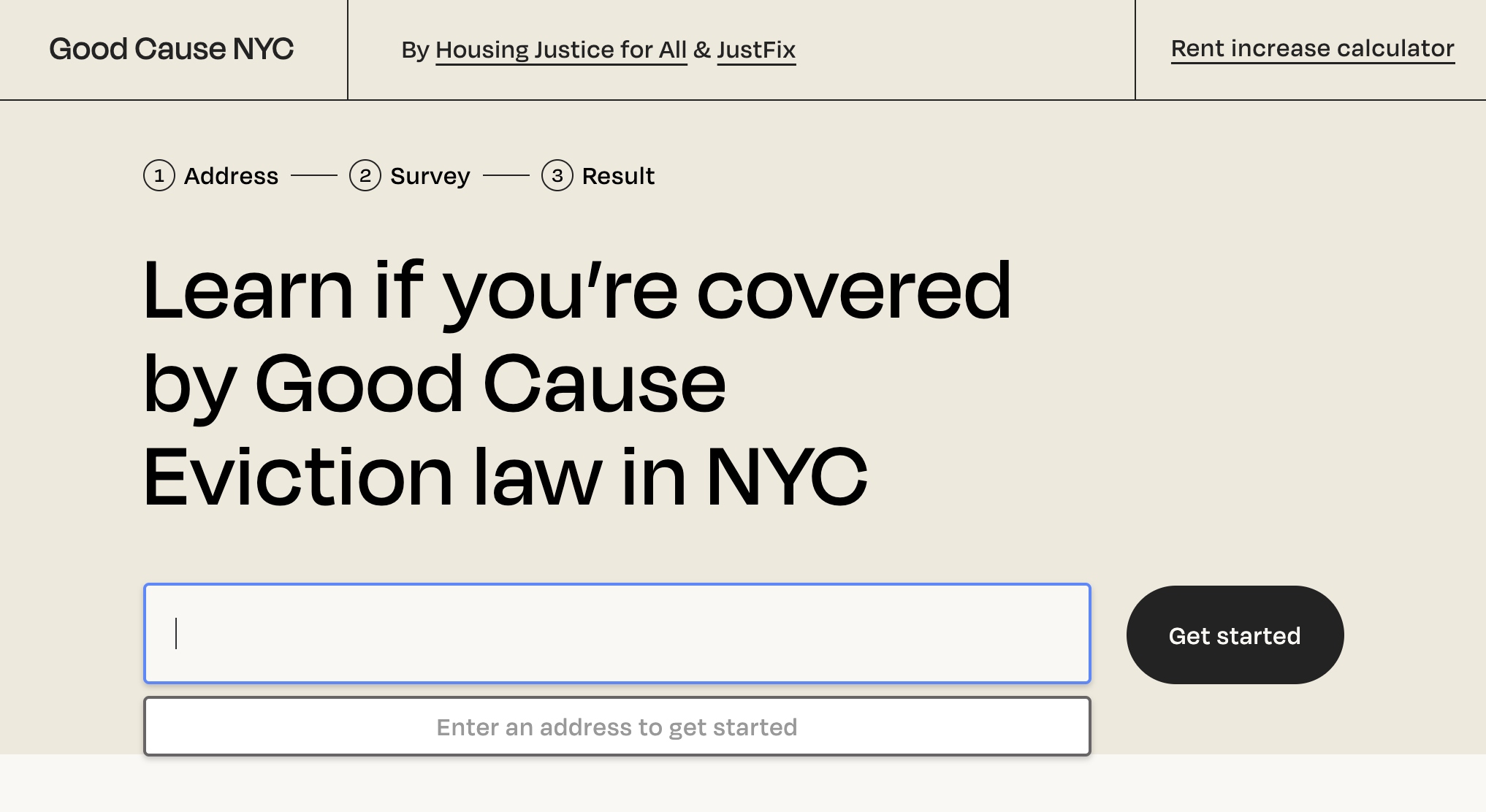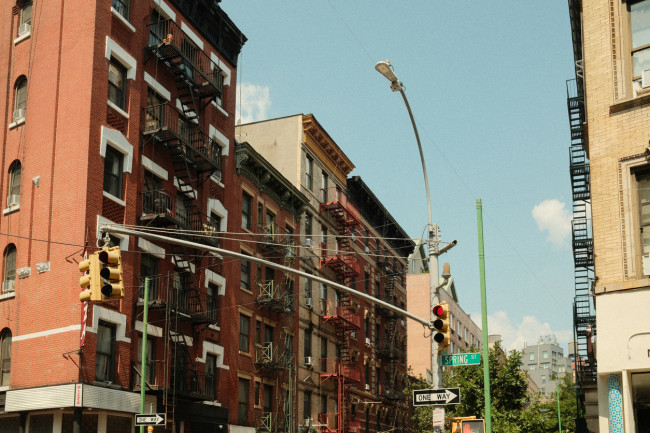Should you get a smaller rent increase under Good Cause? A new tool helps you figure it out
- Housing Justice for All and JustFix launched an online site that tells you if you’re likely covered by Good Cause
- You and your neighbors can use Good Cause to negotiate rent increases below 8.82 percent this year

Good Cause Eviction gives New York City tenants a right to challenge a rent increase above 8.82 percent this year.
iStock
Thousands of tenants across New York City are entitled to smaller rent increases this summer under a new law, Good Cause Eviction, which passed in last year’s state budget. Now, finding out if you’re covered by the law just got a little easier.
Two nonprofits, Housing Justice for All and JustFix, launched an online questionnaire that enables renters who input their address—plus some extra information—to figure out if they’re likely covered under Good Cause Eviction, which gives renters a way to challenge rent increases above 8.82 percent this year.
“Good Cause is really about leveling the playing field between landlords and tenants,” Cea Weaver, coalition director for Housing Justice for All. “Our hope is that, by using this tool, tenants are better equipped to fight price gouging, to fight for a strong lease term, and to stand up to their bullying landlords when their lease is up for renewal.”
Good Cause Eviction gives NYC tenants more bargaining power when negotiating a rent increase with their landlord, and requires that a landlord have a good reason to evict you. But the law has a lot of exemptions: buildings constructed (or substantially renovated) after 2009 aren’t covered, and neither are buildings owned by landlords who own fewer than 10 apartments statewide.
Figuring out if your building falls into one of those exemptions is tricky stuff, (even for a seasoned real estate journalist). Landlords often use limited liability companies for the buildings they own, making tracking ownership difficult.
But with the Good Cause tool, JustFix pulls data for you from city agencies to help identify who owns your building, how old it is, and if it falls under any of the Good Cause eviction law’s other carve outs.
“My hope is that it gives tenants the evidence so that they can be confident in asserting their rights,” said Joel Stillman, co-CEO of JustFix, which developed the tool with Housing Justice for All.

How to use the tool
Under the law, your landlord should notify you as to whether you’re covered under Good Cause eviction through a document in your lease. But even if they claim you’re not covered, it’s worth checking their math.
So head on over to GoodCauseNYC.org. You’ll need to enter your address, the monthly rent for your apartment, and the number of bedrooms in your unit to get started. The tool will ask you two trickier questions: whether your apartment is rent stabilized, and whether it’s part of a public subsidy program.
If you don’t know if your apartment is rent stabilized, you should find out asap. Rent-stabilized renters are not covered by Good Cause but have additional protections; rent increases are capped by a city board every year, and tenants generally have a right to automatically renew the apartment. You can get your rent history through JustFix’s online request form, by emailing a REC-1 form to the Division of Housing and Community Renewal, or by mailing the form physically to their office at 92-31 Union Hall St., 6th floor Jamaica, NY 11433.
If your building is regulated by the federal, state or local government, such as the New York City Housing Authority, it’s also exempt from Good Cause. If you’re not sure if your building is part of a subsidy program, the tool will suggest an answer based on publicly available data.
Once you’ve entered your information, the questionnaire will tell you whether you’re likely covered or not covered by Good Cause. But note that word: “likely.” Outside of a housing court case, it’s difficult to be absolutely certain about whether the law applies to your apartment, Stillman noted.
To have a little more certainty, you can research your building yourself. Check out this Brick Underground story for more: “How to tell if your NYC apartment building is protected by the new Good Cause eviction law.”
Next step: negotiate
If you’re covered under Good Cause Eviction, you can use that information to negotiate a rent increase with your landlord. Weaver recommends working together with your fellow tenants to negotiate.
“Always communicate with your landlord in writing and talk to your neighbors,” Weaver said. “If your landlord is disrespecting you, he's probably disrespecting your neighbors too, and the best thing you can do is work together.”
If negotiations fail, you could try to argue in housing court against the increase, forcing your landlord to justify the hike before a judge. (And fair warning, they could be successful; if your landlord did significant renovations to the building, they may be able to argue that a higher rent bill is necessary.)
Check out this Brick Underground story for more advice: “How to use New York’s Good Cause eviction law to negotiate a smaller rent increase.”




























